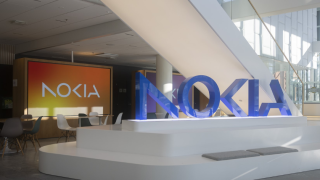The privately held company told debt investors that it is in arbitration about Papua New Guinea’s late demand for a $100 million tax bill, but has put the sum into an escrow account so the disagreement won’t hold up completion.
For the heavily indebted, privately held group, the Australian cash can’t come a moment too soon.
Telstra agreed to buy Digicel Pacific, which includes operations in Fiji, Nauru, Papua New Guinea, Samoa, Tonga and Vanuatu, in October last year with strong financial support from the Australian government.
The deal came after reports – never confirmed, and now questioned – that Chinese interested were wanting to buy the Pacific business from O’Brien (pictured).
Telstra will contribute only $270 million of the purchase price and the Australian government will contribute $1.33 billion, through Export Finance Australia.
A report in the Dublin-based Irish Times said this week that O’Brien told bondholders that service revenues for its financial year to 31 March rose 4% to $2.2 billion, while Ebitda grew at the same pace to $972 million.
However currency movements “wiped out much of Digicel’s 10% increase in underlying revenue in the fourth quarter, said the newspaper.
As a privately held company – 100% owned by O’Brien – Digicel has traditionally published little financial information, but because of its indebtedness it does report key financial data. Its investor relations pages say that total debt is now $5.94 billion, with $925 million maturing next March, with a further three loans totalling $3.28 billion falling due in April, May and June 2024.
The Irish Times report says that “the value of $925 million of its bonds that fall due in March 2023 fell 37% to just over 60ȼ on the dollar over the course of the first six months of this year, amid mounting concerns about the telecom group’s ability to repay the debt.”






